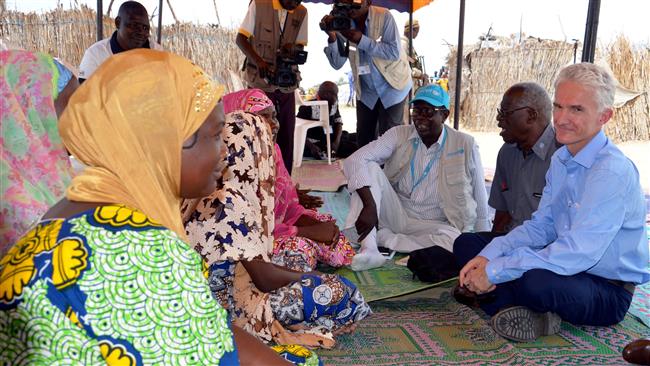La Republique du Cameroun: Seeking justice for Boko Haram’s victims of rape
Zara Oumar is now living safely in Cameroon after escaping from Boko Haram, which held her hostage for four years in Nigeria’s neighbouring Sambisa forest.
Her two young sons are a product of rape by the militants.
“They told my dad they want to pick me up and take me and threatened they would kill us all including him. When my father accepted, they also took other girls in the village by force and that’s how we ended up in this bush in which I didn’t know anyone,” she told Africanews.
“When I tried to escape they held me and beat me. The person I was a slave to abused me and I got pregnant, I only ate herbs to survive, even bathing was almost impossible at times.”
In the end, she escaped by bribing a child soldier.
“I could never tell my children that they are the fruit of Boko Haram members,” she said.
Stories of rape and abuse are widespread are not just committed by militants.
In Maroua, in the far north of Cameroon- the Association for the Fight Against Violence on Women and Girls has been helping victims of rape and forced marriage for 30 years.
Many girls and women are raped by neighbours and people they know.
‘He came each time to harass me’
The centre takes in girls in difficult circumstances, such as Soumeïa, who was abused by an adult in her neighborhood in Maroua at the age of 15 when she was in her second year of college.
“At the time I didn’t know anything at all, I was still quite naive,” Soumeïa told Africanews.
“He came each time to harass me and says that he loves me and so it is like that until the day he asked me to come to his house.
“He did this weird and painful thing to me, intercourse afterward I got pregnant.
“I didn’t tell anyone until it was discovered that I was very advanced in pregnancy. When my parents found out they asked me what happened and who the perpetrator is, I showed them, we called him three times he did not come,” she said.
The main age group for girls who are victims of abuse and child marriage is 11 to 16 years old.
Seeking justice
For many women and girls here, the association helps them with getting their cases to a court and it also helps them know their rights.
The association also pressures the perpetrators to recognise the children.
It has worked in some cases like Soumeïa’s and thanks to pressure from the association, the perpetrator finally recognised the pregnancy and the child.
But in many cases, the rape is reported too late.
“Usually cases of rape happen to us when there is already a pregnancy, and when there is pregnancy it means that it has gone beyond 72 hours so all supporting evidence for the rape is erased,” said Vondou Aïssa from the women’s association.
“Sometimes here they try to settle cases of rape amicably because it is usually a neighbor, a member of the family and we are ashamed of the social pressure.”
But Aïssa said when that does not work out, the centre refers the case to court as they have a legal case manager.
The association also helps with the girls’ and womens’ trauma and provides training so they can become independent.
Source: Africa News





